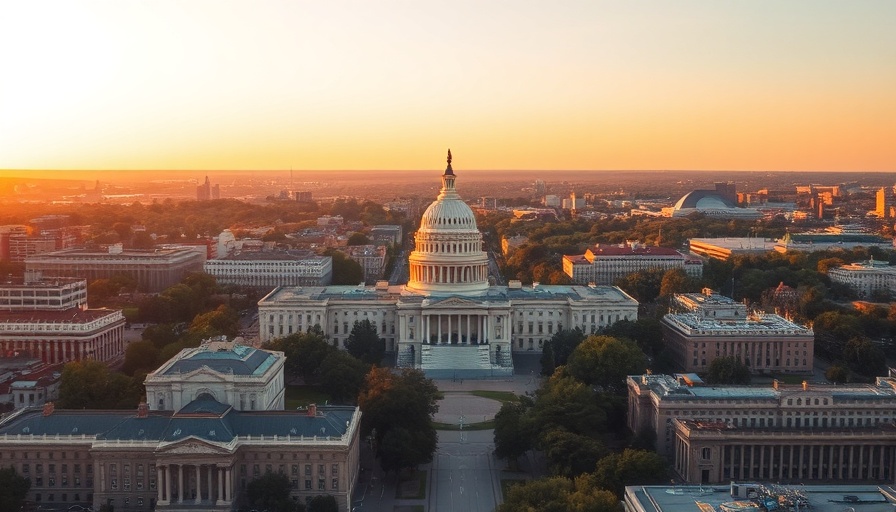
Choosing the Right State for a Comfortable Retirement
As 4.2 million Americans prepare for retirement in 2025, many are wondering which states will provide the best opportunities for a fulfilling post-work life. A recent report from Seniorly has surveyed all 50 states plus Washington D.C. to rank them based on various factors, such as cost of living, healthcare access, and recreational offerings. This ranking comes at a crucial time as retirees seek to maximize their golden years in environments that foster health, happiness, and financial stability.
Top Contender: Washington D.C.
The nation's capital emerges as a surprising but relevant leader in retirement satisfaction. With an abundance of doctors—769 per 10,000 retirees—and robust recreational facilities like golf courses and museums, D.C. offers both access to healthcare and leisure activities. However, it’s not all sunshine and rainbows; high living costs and a steep income tax rate could present challenges for those on fixed budgets.
Conventional Choices: States Like Florida
While many believe Florida is the prime retirement destination, it fell to 18th place in the Seniorly report. Factors such as comparatively low Medicaid spending on long-term care, just $542 per senior, highlight why this state is losing its allure in the eyes of many potential retirees.
Making Informed Decisions for the Future
For young entrepreneurs focused on creating innovative solutions, understanding retirement trends can provide insights into future market demands. The states that prioritize healthcare and community support are positioning themselves as attractive places for an aging population. Therefore, budding business minds can discover gaps in services mentioned in this report and use them to forge ventures that cater to these emerging needs. For instance, exploring telemedicine could bridge the healthcare access gap in states that rank lower in senior support.
Focus on the Worst: New Jersey and Beyond
New Jersey emerged as the worst state for retirement largely due to its high cost of living and limited recreational amenities. Massachusetts wasn’t far behind, plagued by similar issues. Such rankings serve not only as a point of concern but also as major learning opportunities for innovators in the market. Nonprofits, tech startups, and other enterprises can rally to provide affordable solutions that meet the unique challenges of retirees in these states.
Conclusion: A Call to Adapt and Innovate
The findings of this recent report have vital implications not only for retirees but also for the younger generation keen to make a mark in the entrepreneurial world. By creatively addressing the barriers faced by seniors, they can harness a new path for growth and innovation that caters to an evolving demographic landscape. The information inspires not just reflection but actionable insights for creating a better future.
 Add Row
Add Row  Add
Add 




Write A Comment